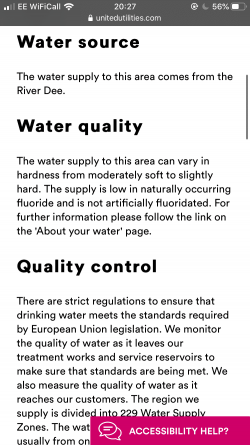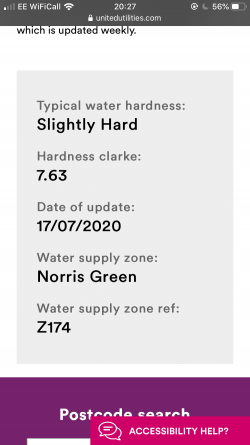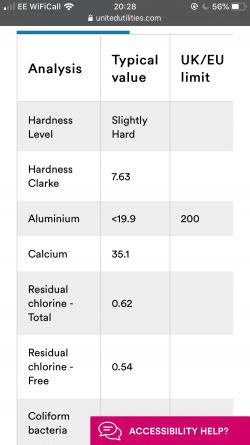Hi
Hi, it’s hard for me to type it out on here as I have to keep clicking n back to another tab then it comes up “submit form again”, but it says the ph (hydrogen ions) are an average of 7.37. I will attach screenshots of the hardness of the water (it was hard to screenshot the hydrogen ions section because the layout of the form)One thing you can do in the meantime is look on your water company's website at two things. The first is the water quality report. This will tell you some useful things such as the amount of nitrate in your tap water. They'll tell you the number of samples they tested, the lowest, highest and mean levels of those samples.
Next hydrogen ions - that's pH. Again lowest highest and mean.
Finally in a different section, hardness. They might just give it in words which can be misleading. If you are lucky, they'll give you a number. Make a note of that number and the unit of measurement - UK water companies often use different units from fish keeping so we have to convert the number.




 and I already put 2 tsps of aquarium salt in a few days ago as advised by the pet shop (it’s probably mostly removed now after the large water changes Since), will this do any further harm ?
and I already put 2 tsps of aquarium salt in a few days ago as advised by the pet shop (it’s probably mostly removed now after the large water changes Since), will this do any further harm ?